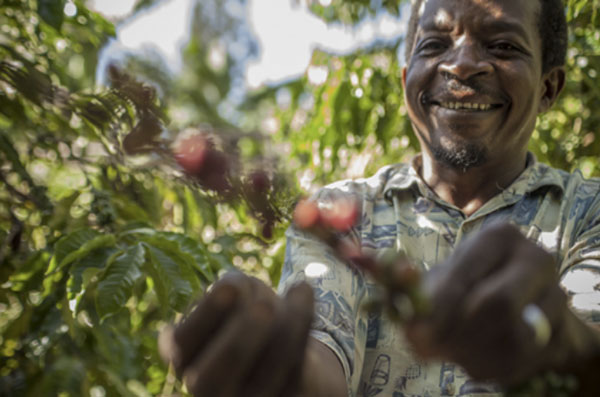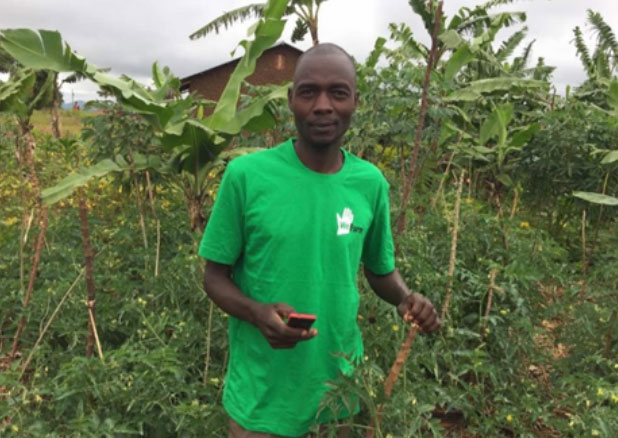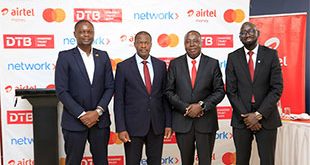
Kampala, Uganda | THE INDEPENDENT | For a long time, small-scale farmers have been left on the side lines of agriculture to fend for themselves. This is because of the misconception that these small-scale farmers produce very little, so they have no impact on the economy. How misguided. In fact, small-scale farmers produce over 70% of the world’s food.
Imagine a group of small-scale farmers combining their efforts to move from household to commercial production. This is what they call the power of numbers. More than ever, farmers are making an effort to jump the gap in access to knowledge and how they receive that knowledge.
Small-scale farmers are the ones in most need of this innovative boost in order for them to cope with their struggle to produce more for commercial purposes, and answer the call of growing demand for food in a growing market. Through the use of computers, internet and mobile phones, farmers can have a wide stream of knowledge at their fingertips.
However, with a new mobile technology called Wefarm, farmers do not need to be tech savvy or have access to the internet or even airtime. All they have to do is join the Wefarm network and they can send free SMS messages to other farmers, asking for or giving advice.
Their messages will be sent out to other farmers who will then share their knowledge (the Wefarm network currently has over 870,000 farmers giving and receiving advice). The knowledge shared is then sieved through the Wefarm system to avoid cases of misinformation.
Farming is high risk
Farming is high-risk business that is filled with many uncertainties. Farmers are facing many threats that range from poor soils, quality seeds, drought, erosion, fluctuating market prices and pests. Fundamental impact will be made from sharing information, like about fertilizers, agricultural machinery, and disease control, new seed and animal varieties, and the available regulations for quality control in Uganda.
The most frequently asked questions on Wefarm’s network in Uganda are about rearing chickens, cattle and goats, as well as farming maize, tomatoes and beans. Questions shared and answered through Wefarm show that Ugandan farmers are commonly challenged by disease in cattle, as well as coffee wilt and banana wilt. Fellow farmers respond through their phones on how to overcome these common challenges.
Combining farming and ICTs yields results – results that are measured and scalable.
The growth of e-agriculture has the potential to accelerate agricultural production and rural development, promote food security and reduce rural poverty in developing markets like Uganda.

Wandera tells his story
Wandera Michael experienced these benefits when he joined Wefarm. Who knew that sending a message would be so empowering? As a student at Uganda Christian University (UCU), Wandera Michael is a livestock farmer who also grows food crops for home consumption and has a small fish farm that he hopes will become the largest in Namayingo.
He narrates: “Wefarm has helped me fight diseases affecting my cows. In one incidence, my cows had an eye infection and I tried to find help but in vain. Luckily, I tuned to Step FM one evening and heard about Wefarm over a radio show. With the knowledge of such a network, I didn’t hesitate to join. Immediately, I asked about the eye infection affecting my cows. The answer came through in a nick of time with instructions about which medicine to buy. My cows are now disease free.”
Wandera Michael is very sure that without the help of Wefarm, he wouldn’t have found a solution for his cows in time. Wefarm has helped him realise better yields from his crops. According to Micheal, the initial idea was to grow crops for home consumption; however, with the easy access of knowledge, he has now gone ahead to sell some of the produce. Michael has not only stopped at asking questions but he also answers some of the questions other farmers ask and this has helped him acquire more farming knowledge.
Some farmers have practiced farming for a very long period of time, and in that time, they have gained immense knowledge that could be useful to other farmers.
According to Binaama Hussein, sharing is caring and it is only through sharing that we can grow and acquire more knowledge. Binaama Hussein hails from Kanungu district in South-Western Uganda. He is one of the pioneer farmers to use the Wefarm network in Uganda. With the knowledge acquired through Wefarm, today, he grows coffee on a large scale, tea, bananas and other food crops such as beans, maize, and cassava. Binaama mostly answers questions to other farmers. Answering these questions has helped him acquire more farming knowledge since the questions asked are sometimes tricky and force him to do research.
He has taken an extra effort by using the Ask Me command where he prompts Wefarm to ask him questions about coffee, tea and bananas. He says “I am forever grateful because Wefarm is helping farmers overcome their farming challenges through a free service. These farmers don’t need to look around for help because they have solutions to their challenges on their mobile phones.”
Since its founding in 2015 and the 2016 launch in Uganda, Wefarm has been named one of Africa’s Most Innovative Companies by Fast Company and has won Google’s Impact Challenge Award, TechCrunch’s Europa’s Tech for Good Award, and the European Union Commission’s Ideas from Europe prize, among others. The company is headquartered in London with a field presence in Nairobi and Kampala.
Backed by venture capital, Wefarm is a free mobile service that connects farmers to each other. The network empowers farmers by giving them free tools that allow them to express themselves freely and therefore ask questions of any kind without holding back. The technology used on the network has the ability to learn and adapt to different local languages, therefore sending the questions to the people who are proficient in that particular language. In a sense, no farmer is left out. Fellow farmers can then share their experiences as they offer solutions by answering each other’s questions on a free SMS network.
 The Independent Uganda: You get the Truth we Pay the Price
The Independent Uganda: You get the Truth we Pay the Price



Hi my name is Owino, I have 4 acres of ready cassava in Buvuma island, but I am looking for the market. Its nice quality cassava. if anyone interested please let me know on my mobile no.0786676766